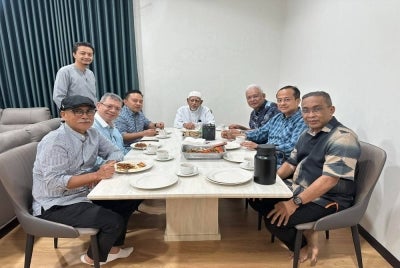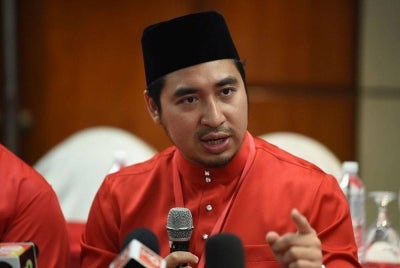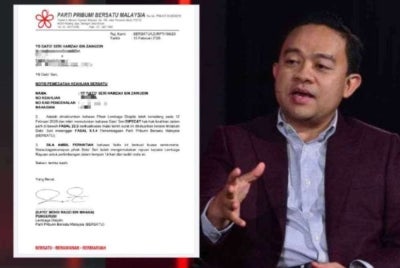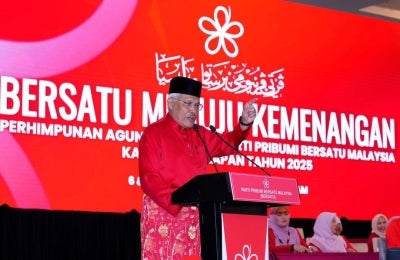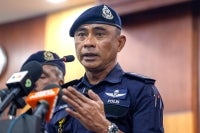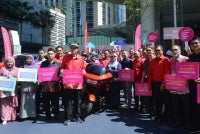PN's strength prevails, PH-BN holding on

KUALA LUMPUR - Despite a commanding performance from the Perikatan Nasional (PN), which secured victory in 146 state seats during the elections last Saturday, the coalition's popular vote count was remarkably close to that of the Pakatan Harapan (PH)-BN alliance.
An analysis conducted by Sinar on the election results revealed that PN secured 49.3 per cent of the popular vote, amounting to 3,382,455 votes.
On the other hand, the PH-BN coalition garnered 49.5 per cent, or 3,399,472 votes.
The electoral outcome translated into PN securing 146 state seats out of the total 245 seats contested.
PH claimed 80 seats, while BN managed to secure 19 seats.
In a notable collaboration, PH and BN cooperated for the first time in the electoral arena, successfully retaining control over three states: Selangor, Negeri Sembilan, and Penang.
Within Negeri Sembilan, the coalition secured victory in 31 out of the 36 contested seats. Similarly, in Penang, PH-BN emerged victorious in 29 of the 40 contested seats.
In Selangor, the coalition managed to govern the state with authority, winning 34 out of the 56 seats.
The PN coalition, comprising Bersatu, Pas, and Gerakan, maintained its position as the state government in Kedah, Kelantan, and Terengganu. A remarkable victory unfolded in Terengganu, where all 32 seats contested were claimed by PN, with the Pas logo, and no opposition managed to secure a place in the state assembly.
In Kelantan, PN achieved a sweeping victory with 43 out of 45 seats, while Kedah saw the coalition triumph in 33 out of the total 36 seats contested.
The election highlighted DAP's strong public support, as the party won 46 out of 47 seats for which they had fielded candidates.
DAP faced a single defeat in the Derga state seat in Kedah, where its candidate, Tan Kok Yew, was surpassed by PN's candidate Muhammad Amri Wahab.
Pas secured victory in 105 seats but faced losses in 22 seats, while Bersatu claimed 40 seats and conceded 41.
PKR managed to win 26 seats and faced 33 losses, Amanah secured eight seats with 23 losses, Umno claimed 19 seats but suffered 89 losses, Gerakan secured one out of 36 contested seats, and Muda faced defeat in all 19 contested seats.
PKR demonstrated its appeal in mixed and urban areas by securing the Bukit Antarabangsa and Kajang state seats in Selangor with significant margins.
A total of 9.67 million eligible voters were registered for the polls. Noteworthy voter turnouts were recorded in Kelantan (60.96 per cent), Terengganu (74.79 per cent), Kedah (73.86 per cent), Penang (72.67 per cent), Selangor (72 per cent), and Negeri Sembilan (68.35 per cent).
Senior lecturer in the Universiti Malaya Political Studies and Administration Department Dr Mohammad Tawfik Yaakub said that the unceasing momentum of Malay voters supporting PN.
He lauded the coalition's impressive performance and noted how the wave of support had curtailed PH-BN's two-thirds victory in Selangor while securing 11 seats in Penang.
"The outcome signaled a need for Umno to assess necessary changes within the party," he suggested.
He expressed concern over Umno's performance, particularly its 19 seats out of 108 contested, implying a challenging outlook for Umno's future alignment with PH.
Reflecting on Terengganu, Yaakub pointed out that prominent figures like Datuk Seri Ahmad Said and Datuk Seri Ahmad Razif Abdul Rahman were unable to withstand the PN wave.
"PH's limited wins in Kelantan and non-Malay seats in Kedah, suggesting that Pas and Bersatu had overridden Umno's traditional strength," he added.
While DAP faced internal disagreement over their cooperation with Umno, Yaakub acknowledged the party's enduring appeal among its members, who continued to support their candidates at the polls.
Download Sinar Daily application.Click Here!


